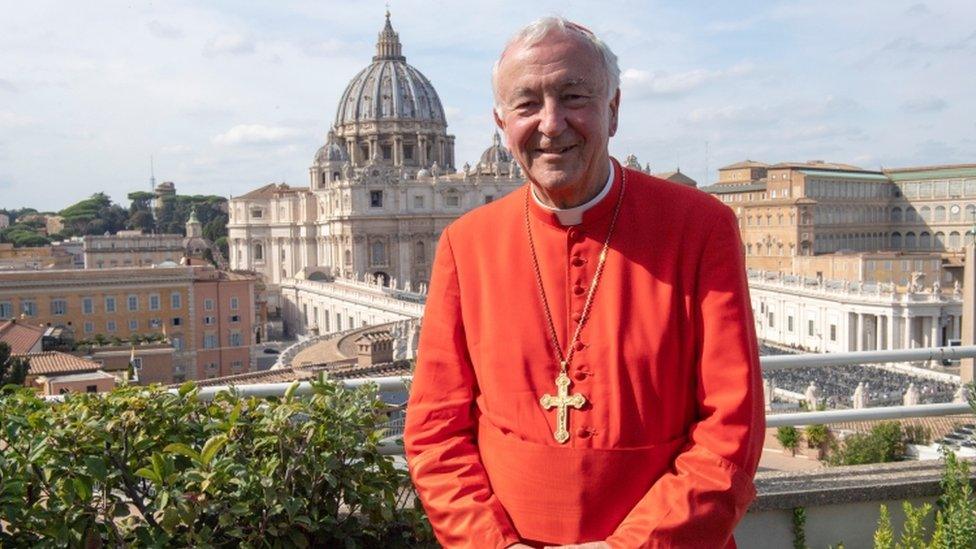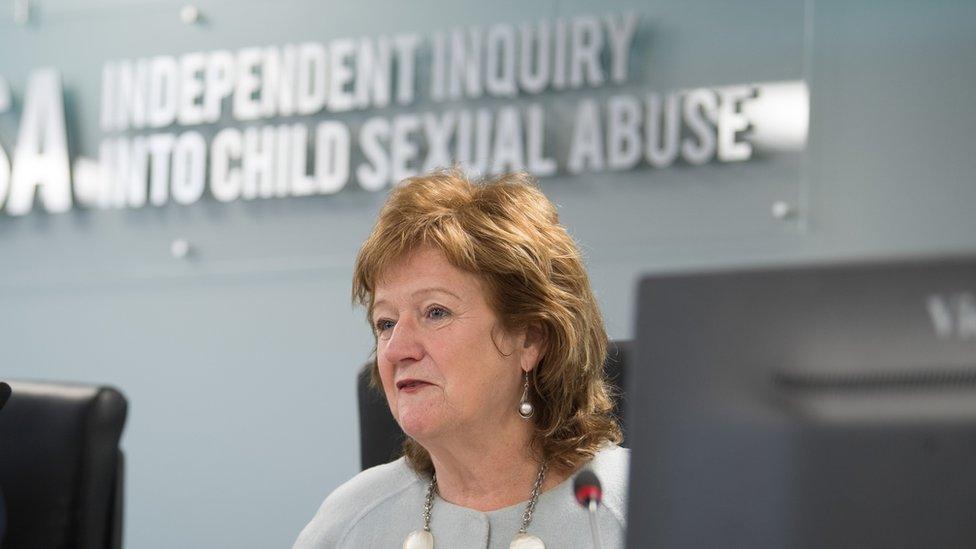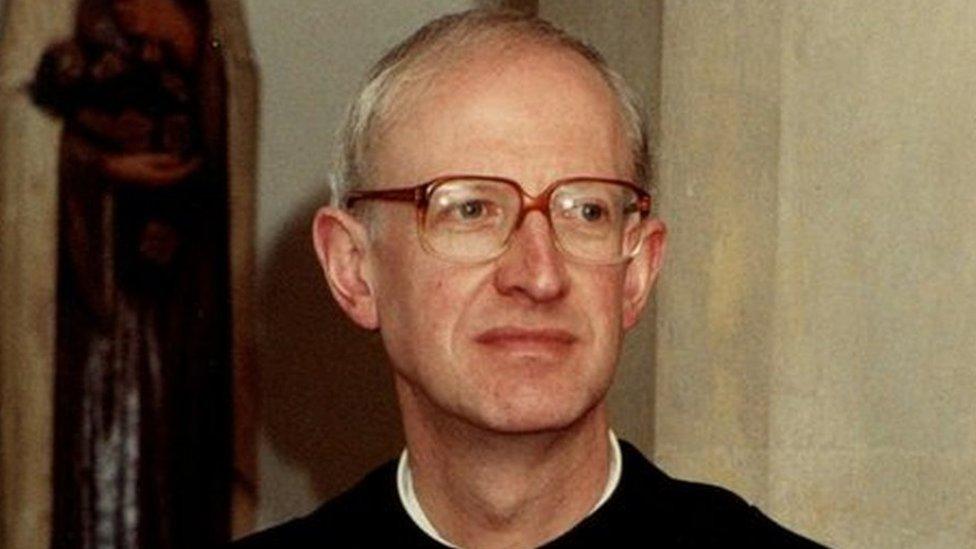Child sex abuse inquiry: Catholic Church 'shocked to core by evil of clergy'
- Published

The Archbishop of Westminster says the Church has struggled to cope with abuse by its members
The leader of the Roman Catholic Church in England and Wales has told an inquiry the Church was "shocked to the core" by child sexual abuse perpetrated by members of the clergy.
The Archbishop of Westminster, Cardinal Vincent Nichols, said the community had struggled to cope with "the presence of evil embodied in its members".
He said the Church's culture had improved "radically" in recent years, but there was still "more to achieve".
Victims said changes had been "slow".
Giving evidence for the second time to the Independent Inquiry into Child Sexual Abuse (IICSA), Archbishop Nichols said he had learned lessons about tackling abuse at a summit called by the Pope at the Vatican for senior bishops.
A letter the cardinal wrote to bishops in England and Wales following the meeting was shown to the inquiry.
He wrote that, during the meeting, "in me, something deeper changed".
"A change of perspective. I began to see everything from the perspective of the victim/survivor," he added. "That is a sobering perspective for us to take."
Archbishop Nichols told the inquiry the Roman Catholic Church in England and Wales had already implemented some of the measures discussed at the summit.
The cardinal said he did "get" the issue of abuse but that "getting it is always a spectrum" and he was still learning.
"I think we should do more in the general life of our parishes to set the task of safeguarding in a more positive context," he added.
"The experience in the Catholic community in this country over the last 20 years has been one of struggling to cope with the presence of evil embodied in its members, which has shocked it to the core."
An earlier report into abuse in the Archdiocese of Birmingham, which the cardinal led, found that the Church sometimes put its reputation above that of the needs of victims. He said that characterisation did not apply to him.
Lead counsel for the inquiry, Brian Altman QC, asked if the cardinal believed there was still much to improve, despite major inquiries held in 2001 and 2007.
The cardinal said: "The culture of the Catholic Church today is radically different from 2001 or even 2007, but I do think there's much, much more to achieve."
'Hot air'
Richard Scorer, specialist abuse lawyer at Slater and Gordon, who acts for 27 abuse victims in the inquiry, said: "Cardinal Nichols's evidence will cut little ice with victims.
"The Catholic Church has spent the last two decades promising to get safeguarding right, but the evidence in this inquiry has exposed these promises as so much hot air."
Mr Scorer said improvements had been "lamentably slow", treatment of survivors was "consistently poor" and the Catholic Church's structure and culture meant it was "incapable of delivering the changes survivors need".
Archbishop Nichols was also asked why another archbishop - the Vatican's ambassador to Britain Monsignor Edward Adams - had refused to give the inquiry a statement about abuse at Ealing Abbey and St Benedict's School and specifically why it had taken so long for the Vatican to remove a particularly abusive priest from the Church.
The cardinal said he had stressed the importance of the inquiry to the other members of the clergy but added he was "not a diplomat" and did not understand "the niceties of international law in these things".
He also defended the Vatican police force for providing information that helped to locate and apprehend an abusive priest who had fled the country.
- Published6 October 2020

- Published24 October 2019
